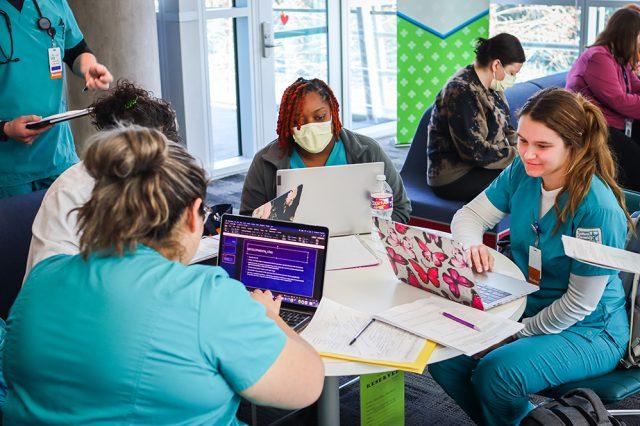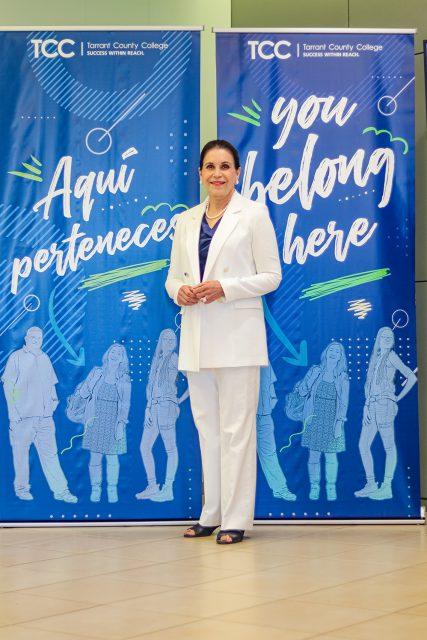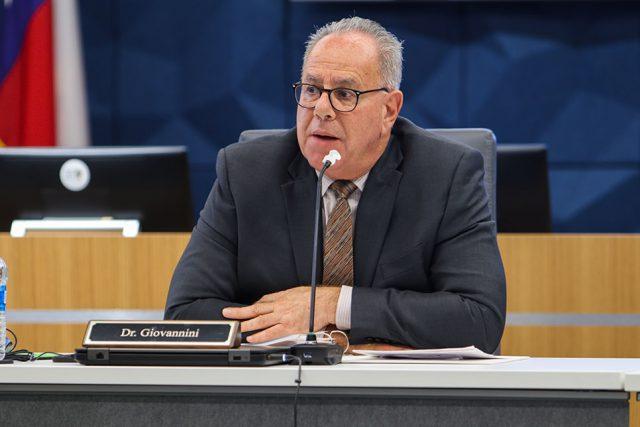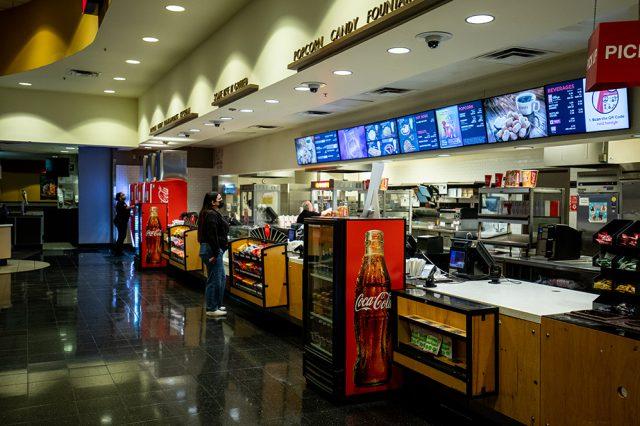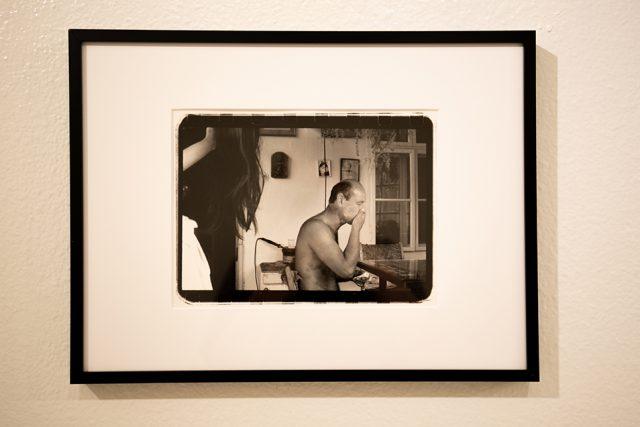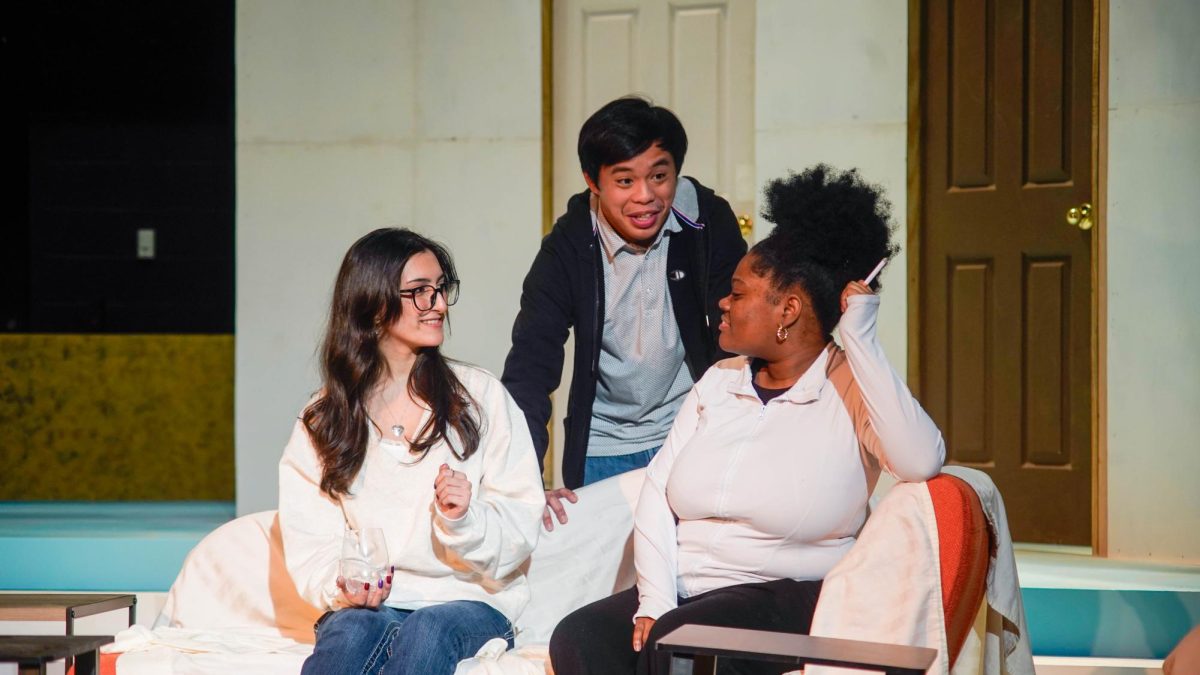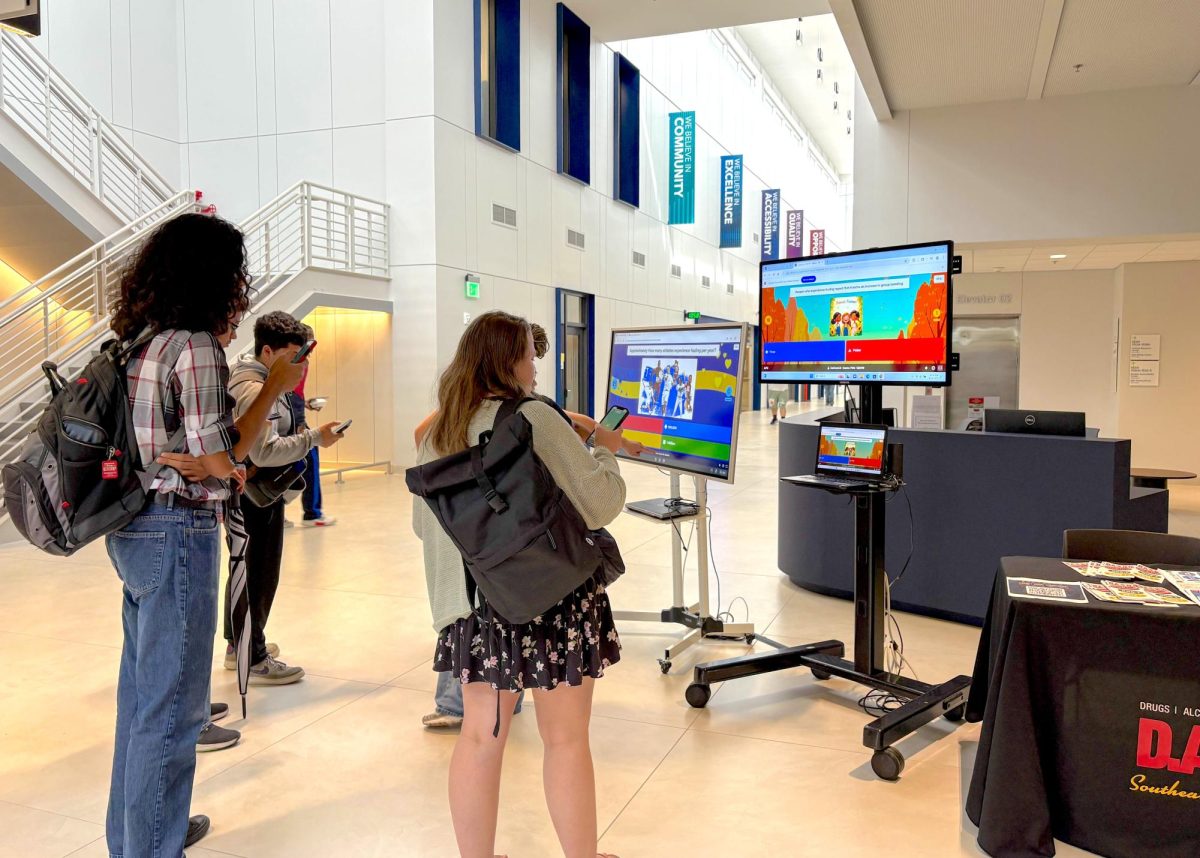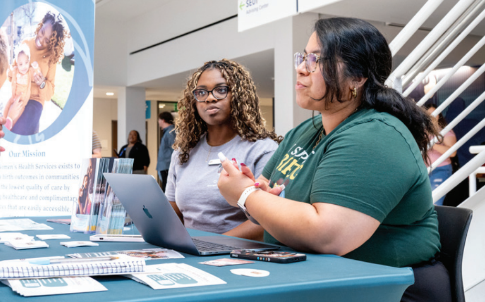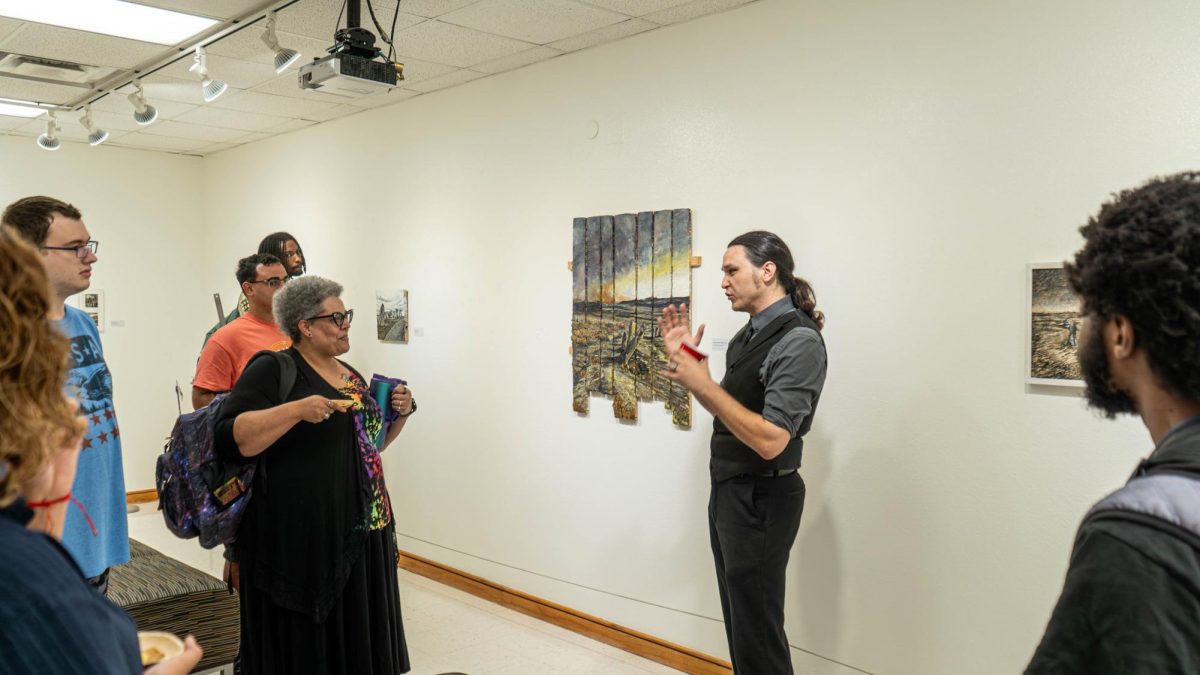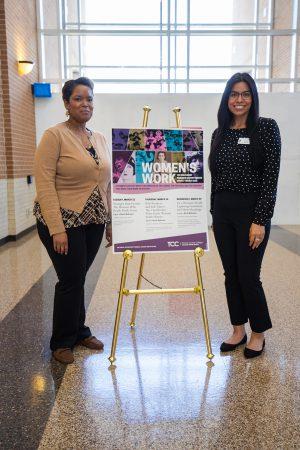
Photos by Joel Solis/The Collegian
RABBIA MOLAI
campus editor
rabbia.molai@my.tccd.edu
SE Campus’ It’s a Woman’s World event March 30 shed a light on feminism, women’s history and literature by people of color.
The event was hosted by assistant speech professor Tonya Blivens and assistant English professor Jacqui Haynes. Blivens and Haynes both spoke on the different forms of feminism and how though they may differ, they all connect on one main moral ground, the need to improve the female experience in the world.
Blivens began by walking through the many different forms of feminism, focusing specifically on the correlation between feminism and womanism. She explained that feminism is a concept that hangs off the umbrella of womanism. While feminism targets solely female issues, womanism focuses on the issues that all people of color face.
“Womanism isn’t worried about defining women,” Blivens said. “It recognizes the feminine spirit, and it takes the attitude that we are stronger together and that we need to work on multiple issues together.”
As a woman of color, Blivens said she hopes she can convey to younger generations of women and people of color that at TCC, they have a community to fall back on.
“The issues that they’re dealing with, women of color have been writing about for centuries, and so I think it’s important as they deal with microaggressions or academic stress that they know they are not alone,” Blivens said.
Haynes spoke about different forms of literature that Indigenous people have used to break down barriers such as creating cookbooks with traditional recipes. Haynes also spoke about the stages Indigenous feminists use to define the progression of writing. She explained them using the four elements earth, air, fire and water, stating that they were phases of writing, not spaces.
“Spaces create borders, whereas phases are larger and more freeing,” Haynes said.
She said she uses these stages in her own classes to help her students connect more with their work on a spiritual level.
“If you see something that has impacted you or your race or your culture or whatever it is that may be bothering you, then you have the capabilities to go through these steps too,” Haynes said. “It’s not just limited to women’s issues.”
Haynes also spoke on what introduced her to the feminist movement in the first place.
“I don’t speak for every Indigenous person or Latino or Chicana person, but for me, it lets you know that you do have a voice, and these people have had to do a lot of work to make sure that your voice can be heard and that you can be an advocate and learn, so it feels like a responsibility to also do it too,” Haynes said.
SE student Elmer Hernandez said he was excited about everything he was able to learn at the event and how much of it related to his life.
“There was a lot of stuff I didn’t know,” Hernandez said. ”When they started talking about food and people not really showing the cultural aspect of it, I kinda sidetracked and thought about how, as a Hispanic kid, you get classified as only being Mexican. It wasn’t until I got older that I realized all the differences and figured out who I really was.”
He said the seminar inspired him to research women’s history and focus on implementing his findings in the future.
Much like Hernandez, SE student Katelyn Vu felt many topics covered in the event spoke to issues she deals with in her day-to-day life.
“It goes back to your identity,” Vu said. “It feels like you’re always competing with yourself. Am I this race first? Am I a woman first? Am I a second-generation American first? It deals with all of that at the same time, and it can really make you feel undervalued.”
She talked about how the different works of literature and the authors Haynes and Blivens spoke about inspired her to keep researching so she can be the one defining her identity, not society.






















